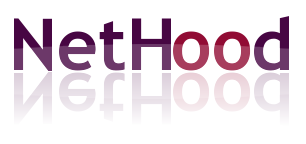
|
about
projects
papers
events
contact
|
(Events organized or co-organized by NetHood - see also selected talks)
Talking Buildings
Series of events using the TalkingBuildings methodology as a community engagement tool
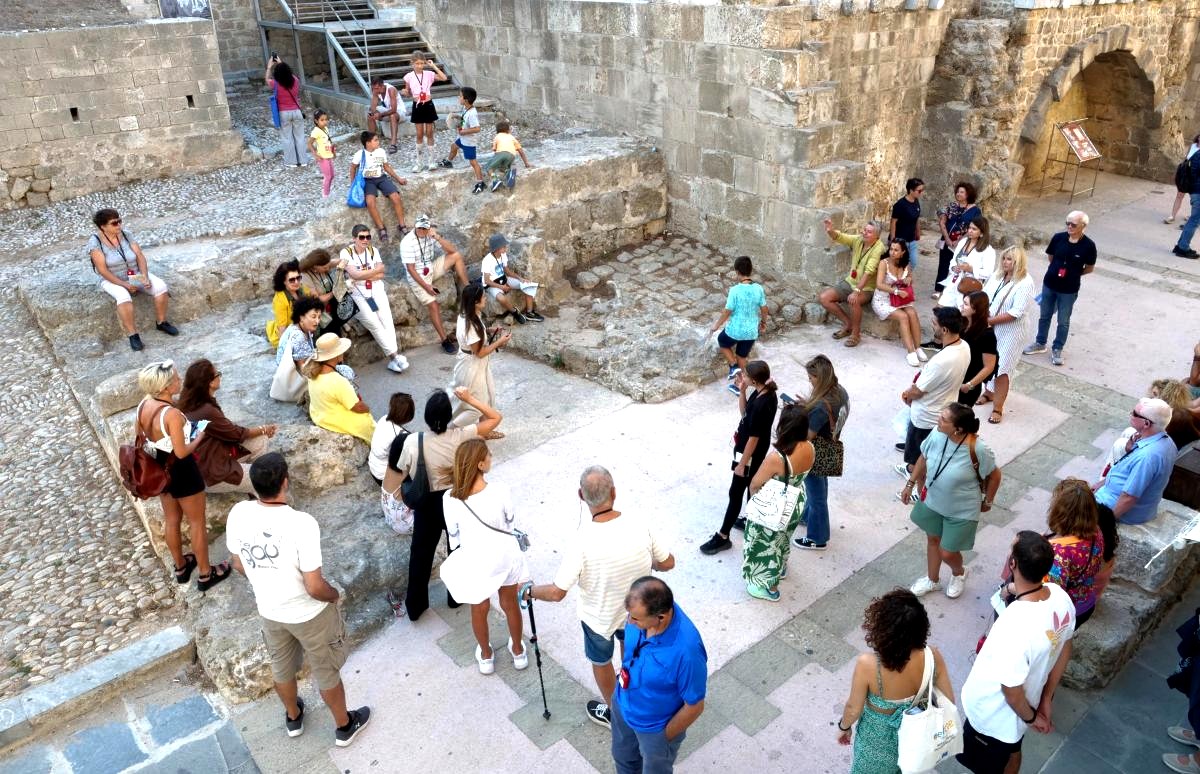
In the context of the SINCERE project NetHood has initiated a series of participatory events and processes in different cities in Europe where participants are asked to give a voice to cultural heritage buildings of their choice. A dedicated web site, talkingbuildings.net, has been created to collect those stories and become a stage for cultural heritage buildings in Europe to tell their stories.
ParLa process
Series of events in the Kreis5 neighbourhood in Zurich, and beyond
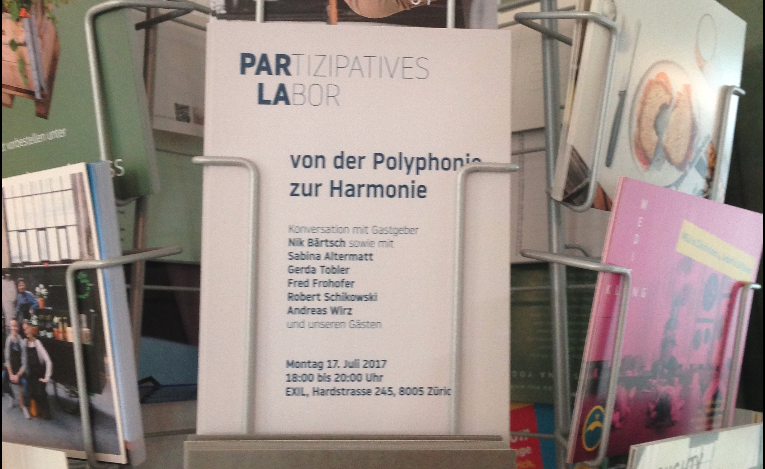
ParLa (Participatory Laboratory) is a place-based public engagement methodology that aims to connect people with each other and with places in their neighborhood, through a long-term participatory process. The idea is to create informal groups of diverse actors living in proximity and organize nomadic encounters at different locations, which become part of the process, and include a digital layer for documenting those encounters and creating a common thread between them. ParLa has been experimented as a process in different places of the Kreis 5 neighbourhood (Kraftwerk1, Stadionbrache, EXIL), and as a singular encounter in Berlin, Heraklion, Bucharest, and other localities.
7at7 series
Every 7th of the month at 7pm alternative news from the digital world and a special topic on digital empowerment.
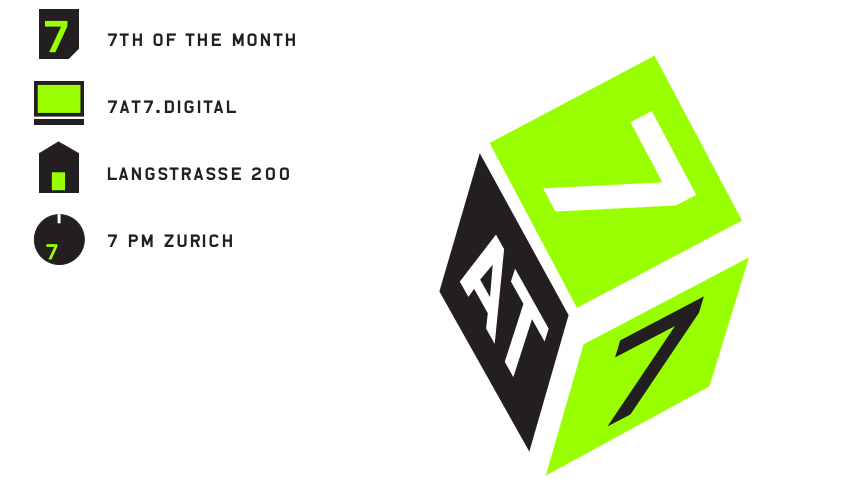
A coalition of organizations in Switzerland, including NetHood, working on important values of Internet Technologies are aiming to establish a public platform where citizens can get access to important information, and create opportunities for collective learning and action. See https://7at7.digital and read the booklet with the overview of the 2021 7at7 events.
Encounters in the hybrid city
Series of events bringing together digital and urban activists
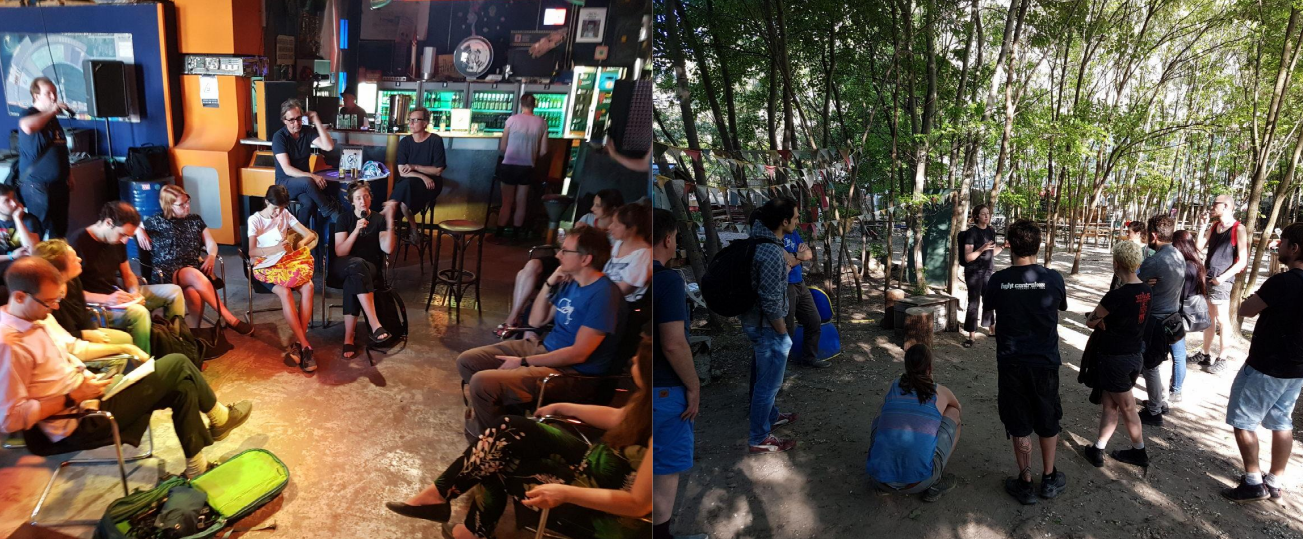
With the support of the netCommons and MAZI projects NetHood conceived and co-organizes a series of gatherings, or encounters, that bring together people from the digital and urban rights movements in an informal and playful way. There is no other agenda but to raise awareness between digital and urban activists for each other's challenges, tactics, and lessons learned. The format varies depending on the context and the available resources and time. The three first encounters took place at the Commonsfest in Heraklion (in greek), the Battle of the mesh in Berlin, and the workshop "Cooperative housing and beyond" in Zurich.
Sarantaporo conference: Building the community in Community Networks
International workshop, Sarantaporo area and Athens, July 7-10, 2018
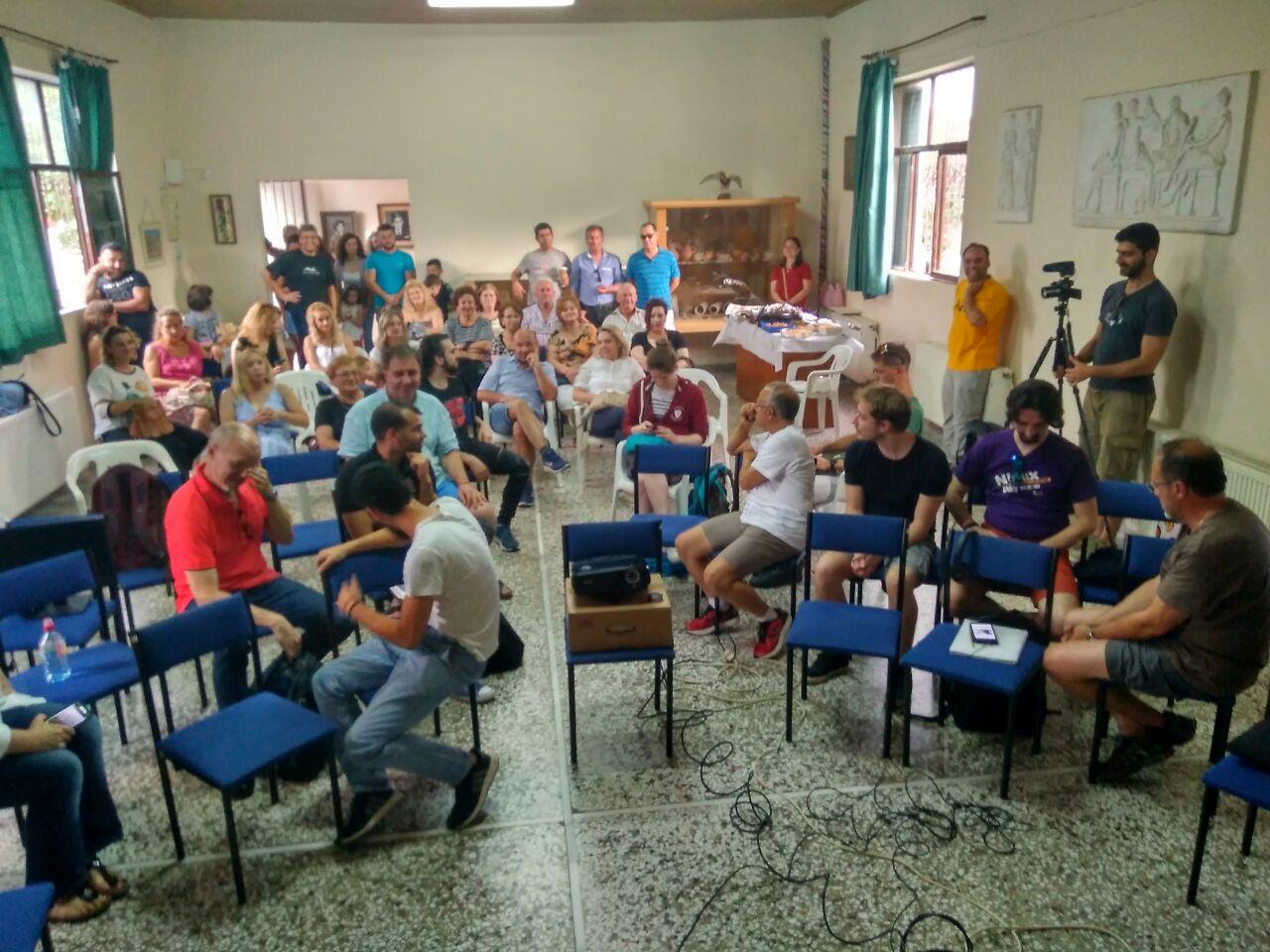
On July 2018, researchers, practitioners, and key actors in the development of Community Networks around the world visited one of the success stories of this movement in Greece, the Sarantaporo.gr Community Network. The workshop comprised of a 2-day guided visit in the Sarantaporo area, including a live streaming event, an "encounter" between Sarantaporo CN and NYCMesh, and a public event in Athens, with local stakeholders, organized by NetHood on behalf of the netCommons project and the Sarantaporo.gr Non-Profit Organization.
Cooperative housing and beyond -- the right to the hybrid city
Knowledge exchange workshop, Kraftwerk1 cooperative and L200 neighbourhood space, Zurich, May 23-25, 2018
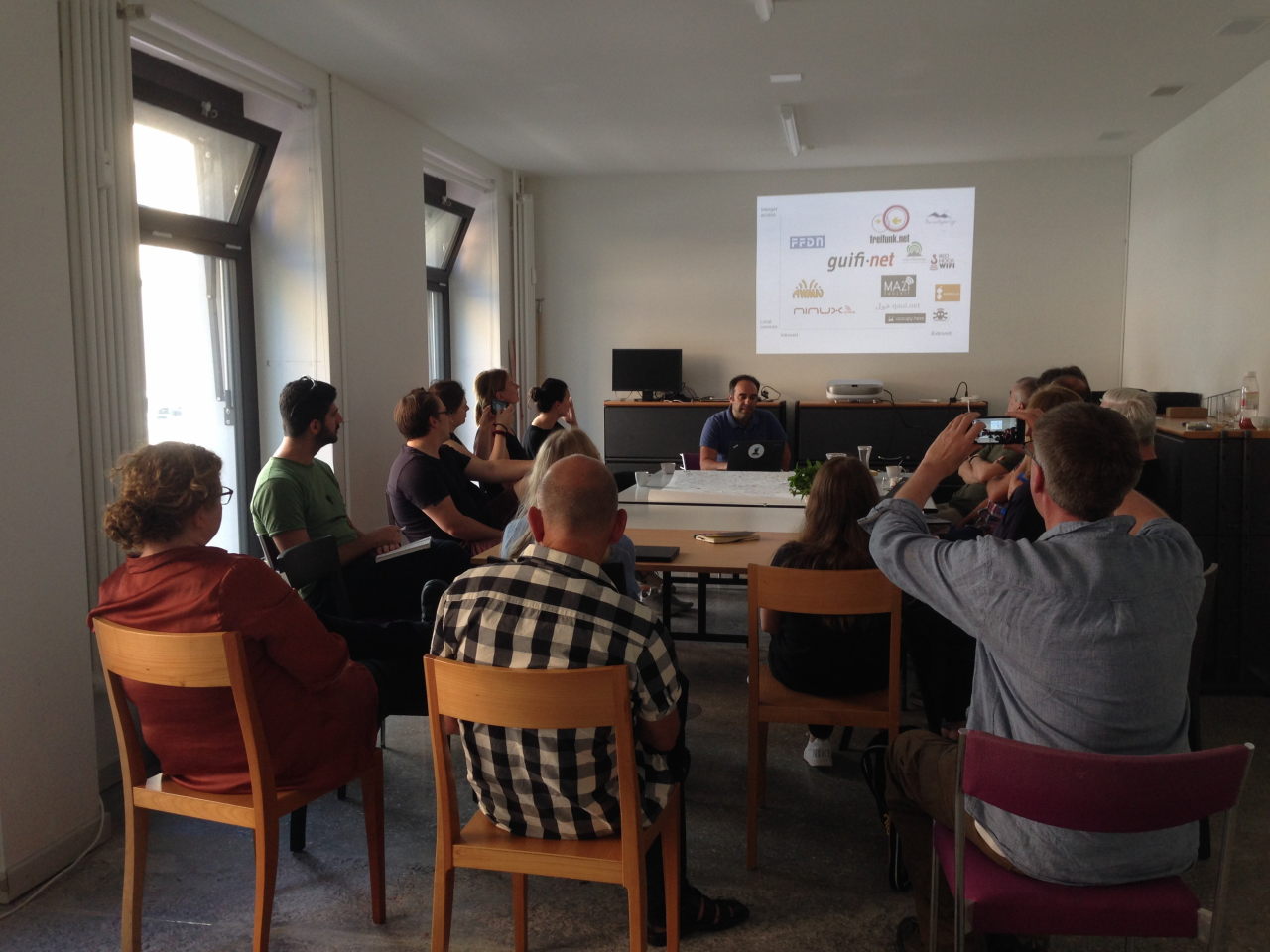
In May 2018, 50 years after the historic call for "the right to the city", the INURA Zurich Institute and NetHood organized a workshop with the topic 'Cooperative housing and beyond', aiming to advance participatory practices in urban production. The workshop took place in Zurich’s Kreis 5 in the Kraftwerk1 housing cooperative and in the neighborhood space at Langstrasse 200, in the context of the projects MAZI, netCommons, ParLa, and the INURA Coop Initiative.
Participatory Design, beyond the local
Interdisciplinary workshop, C&T conference, Troyes, France, June 27, 2017
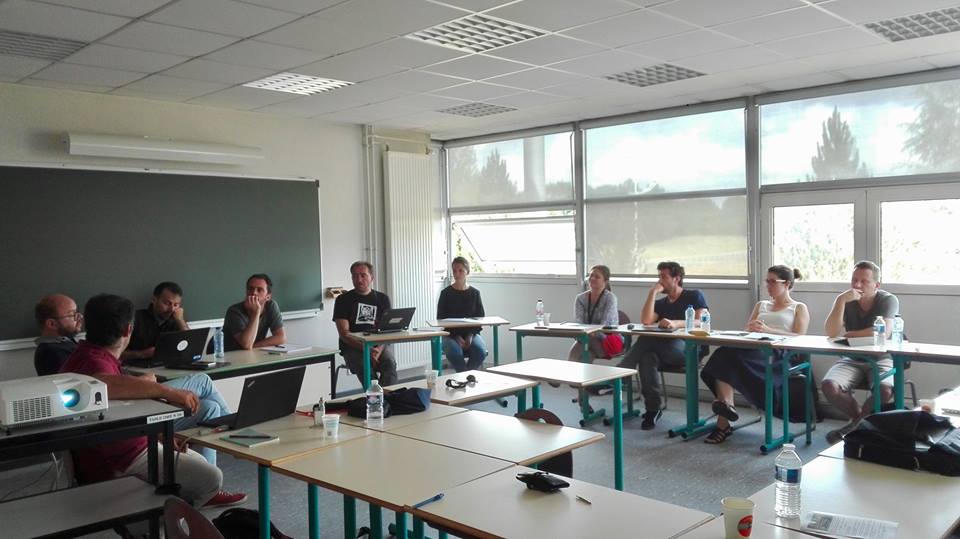
Four EU Horizon2020 CAPS projects, commonfare, empatia, MAZI, and netCommons, collaborate in the organization of a workshop titled "Participation Design, beyond the local", hosted at the 8th conference on Community & Technologies, Troyes, France. The workshop aims at stimulating and opening a debate around the capacity of Participatory Design (PD) and other co-design approaches to deliver outcomes and methodologies that can have an impact and value for reuse well beyond the local context in which they were originally developed.
Digital infrastructure as commons panel and libremesh workshop
Workshop series, Athens, June 11-15, 2017
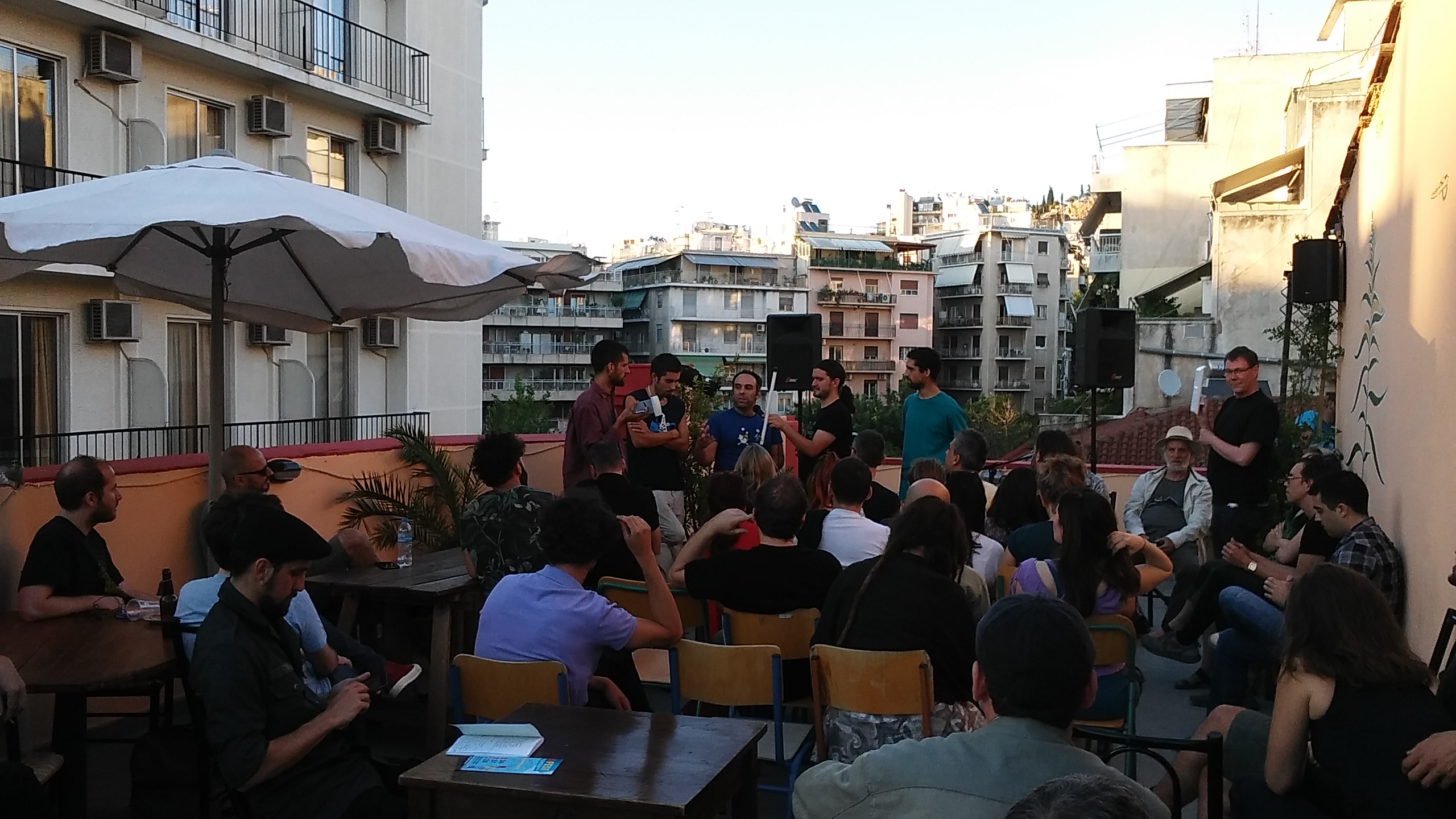
In the period of one week NetHood organized a series of workshops around the concept of network infrastructure as commons. More specifically, a panel at the Universse festival with keynote speaker Juergen Neumann, co-founder of Freifunk.net, a public event on Exarcheia Net with the libremesh team at Nosotros cultural center, and a technical workshop on libremesh at hackerspace.gr.
Agricultural Sector, ICT Innovations and the Commons: Building Synergies
Participatory design workshop, Milea village, November 26-27, 2016
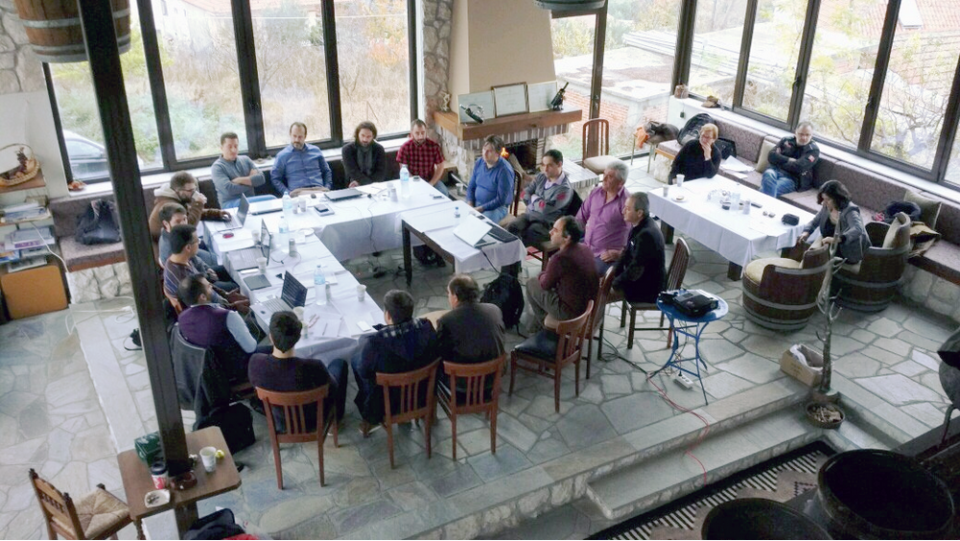
This participatory design workshop was organized in the context of the netCommons project and brought together researchers, entrepreuners, local authorities, farmers, and professionals to explore possible uses of the Sarantaporo.gr Community Network, beyond affordable Internet access. Detailed description of the interactions that took place during the workshop and the overall research approach is available here (Chapter 6).
Flexonomix District Currency Game
Game workshop, MoneyLab 3 conference, Amsterdam December 1-2, 2016
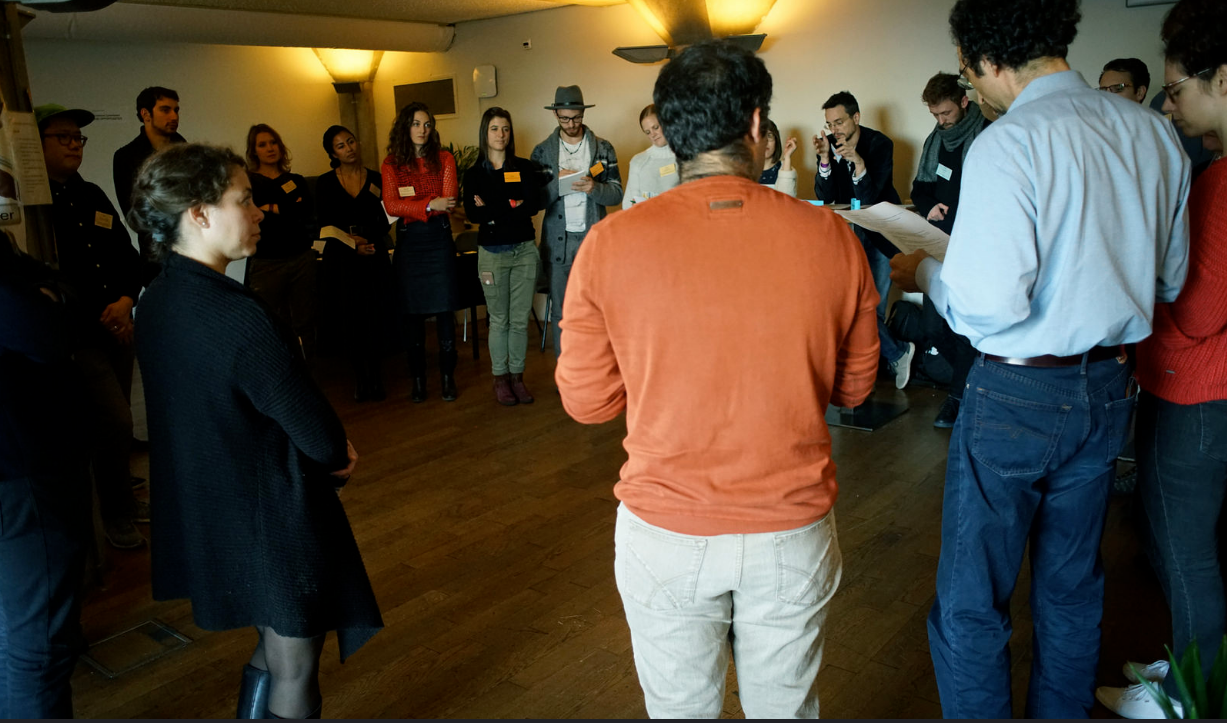
An experimental workshop, a simulation aimed at testing the relations between micro-scale democracy and alternative currencies in the context of cooperative housing. Presented at the MoneyLab 3 conference, December 1-2, 2016, in Amsterdam, organized by the Institute of Network Cultures. See here a short summary and review by the organizers.
Co-housing practices: inventing prototypes for Athens
Greek Pavillion, Venice Architecture Biennale, October 26-30, 2016
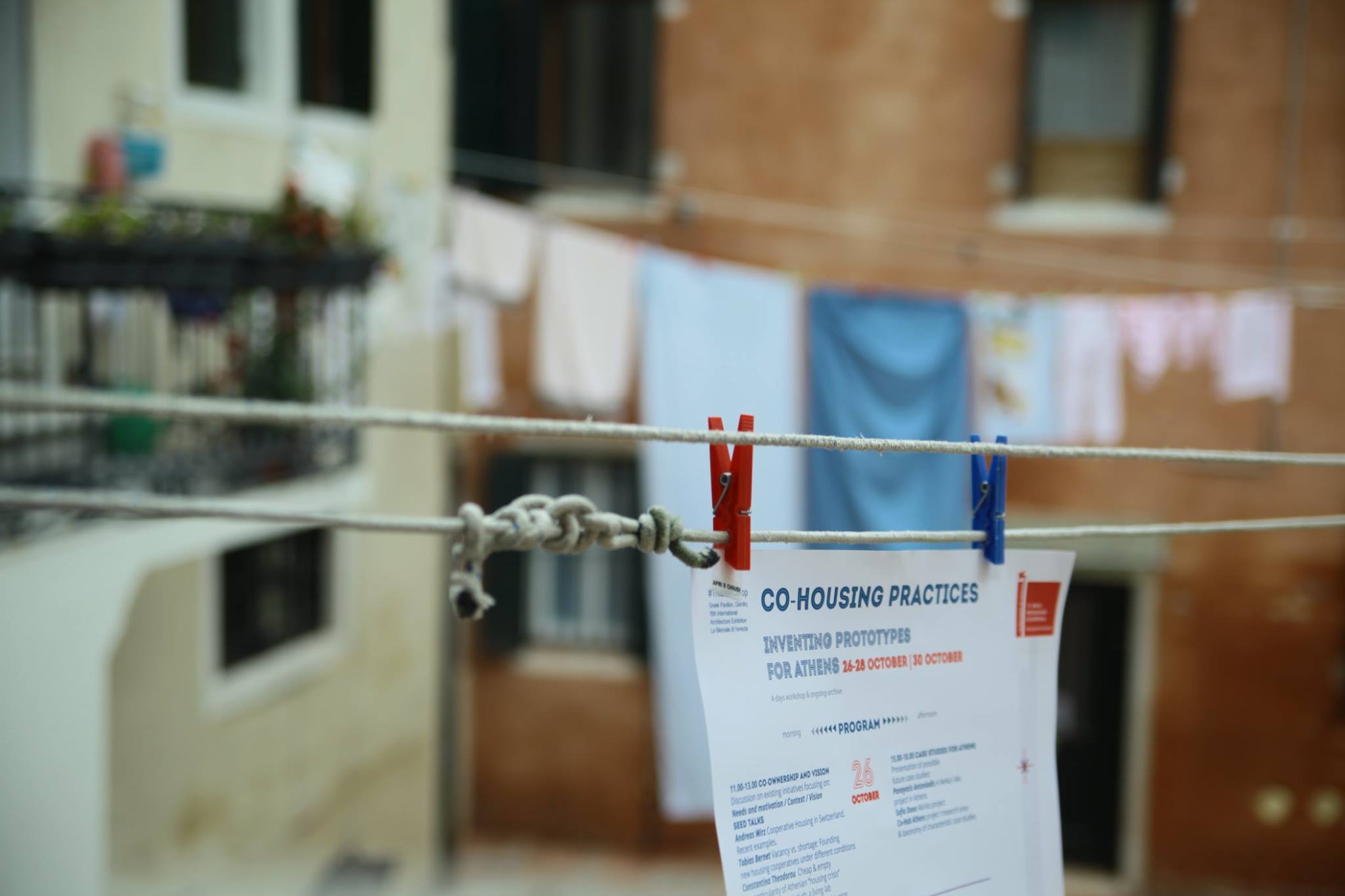
A workshop on co-operative housing, co-organized by the MAZI project and the Co-Hab Athens team, in the context of the #ThisIsACo-op project at Greek pavillion, Venice Architecture Biennale, October 26-30, 2016. See the short description and schedule. See also the local page at NetHood.
MAZI workshop: tools for urban activism
INURA Conference, Bucharest, September 2, 2016.
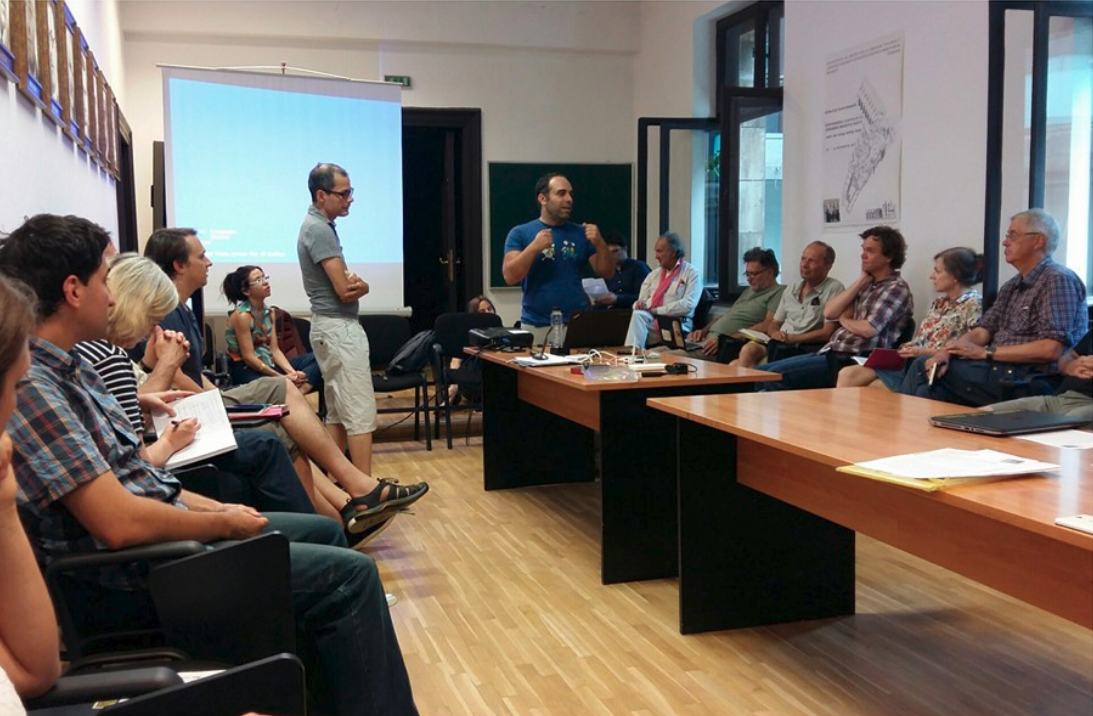
A workshop organized by the MAZI project at the Bucharest INURA conference 2016. Detailed description of this event is included in the Annex of this MAZI report. See also the local page at NetHood.
Sharing ideas for sharing space
Zurich, July 25-27, 2016.
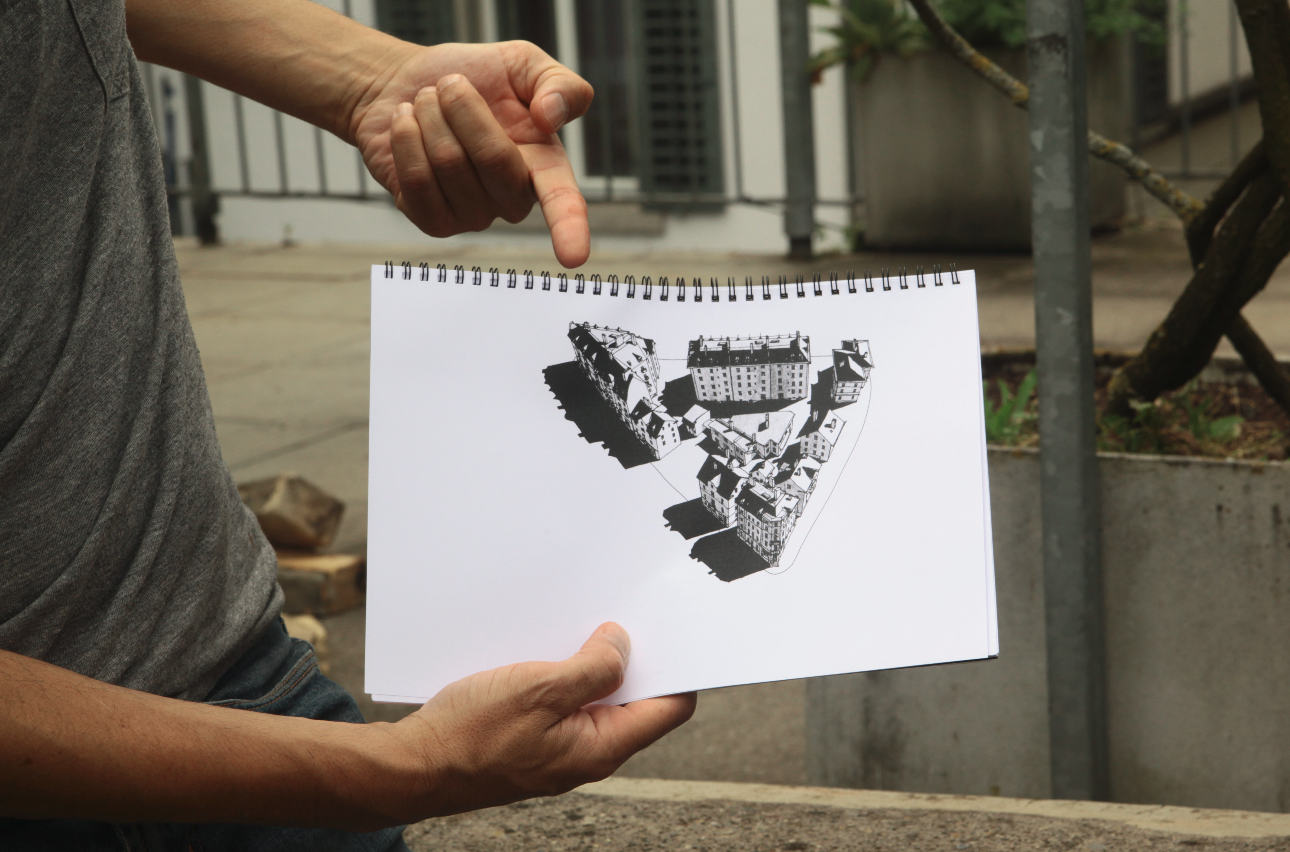
A nomadic workshop to bootstrap a knowledge transfer project on cooperative housing with two special guests from Athens, Dimitra Siatitsa and Constantina Theodorou. See a short description and schedule.
Off-the-cloud zone
Transmediale festival, Berlin, February 6th, 2016.
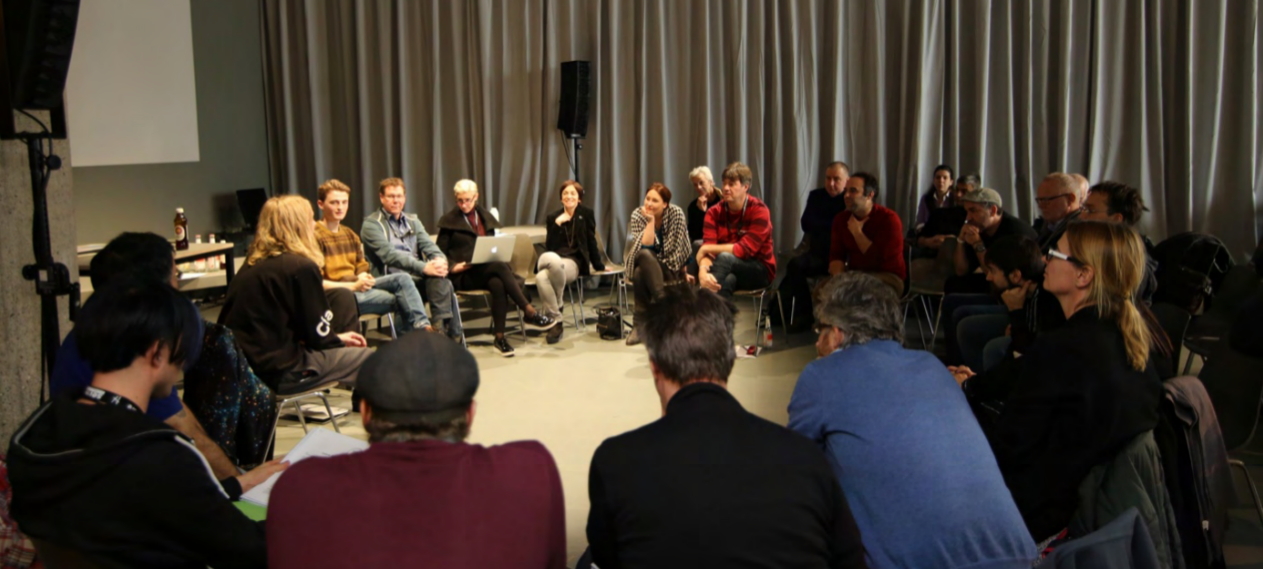
Official page: Full-day workshop and discussions. See also: Necessary Conversations Off-the-Cloud by Marc Garrett
MAZI in Sarantaporo
Symposium, Sarantaporo area, January 15-17th, 2016.
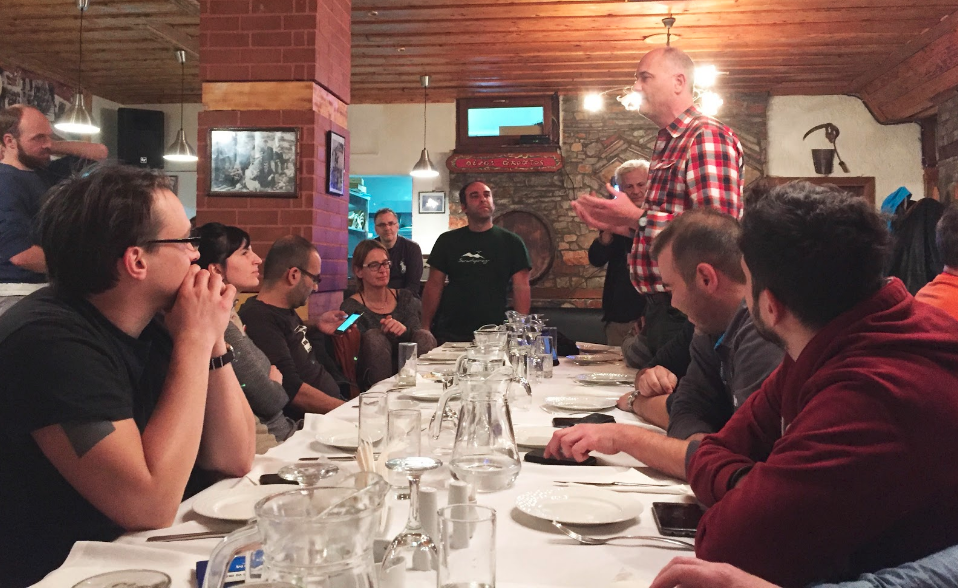
See also a blog written during the preparation phase of this workshop: Two days at the other side of Mount Olympos (day 1) by Panayotis Antoniadis
Digital networks of proximity
Florence, May 20th, 2015.
reti-digitali-e-reti-di-vicinato
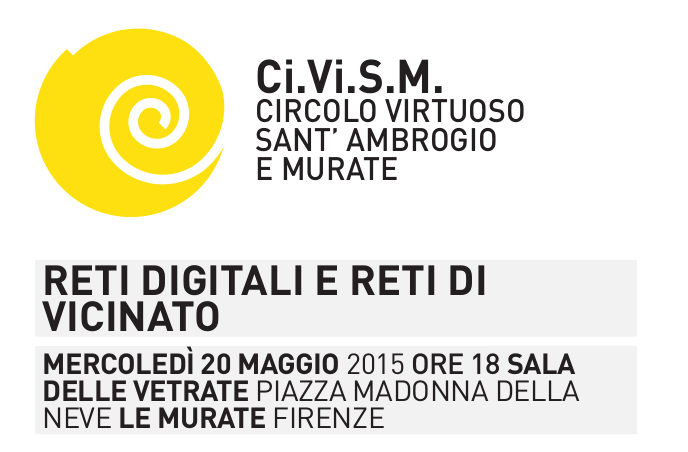
In the light of the 1st Interdisciplinary Workshop on DIY Networking, NetHood played the role of a mediator between two very interesting initiatives in the city of Florence: 1) the local online community for the Le Murate neighbourhood being developed on the platform provided by the EU project MyNeighbourhood and 2) the community wireless network Ninux Firenze. In a very interesting event organized by Anna Lisa Pecoriello, researchers, activists, stakeholders and citizens listened to the motivation and current status of these two different projects and discussed the possibility of having a local online community, as the one supported by the MyNeighbourhood platform, running on top of a local community wireless network, as the one being developed and maintained by the Ninux Firenze community.
First Interdisciplinary Workshop on DIY networking
Florence, May 18th, 2015.
http://diynetworking.net
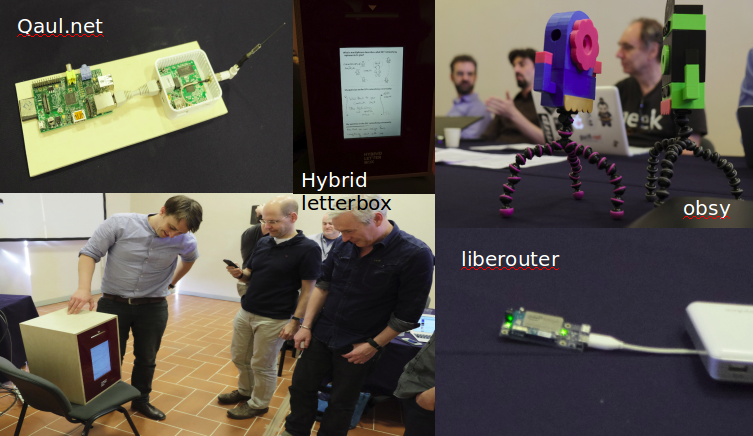
This was the first of a series of interdisciplinary workshops on Do-It-Yourself networking, co-located this year with ACM Mobisys 2015. The final programme is available here: http://diynetworking.net/program.php and more details about the outcome and future versions of the workshop will be available soon.
COMPARE workshops on self-organization
Cagliari, April 2015; Thessaloniki, October 2014; Zurich, April 2015.
https://nethood.org/compare/
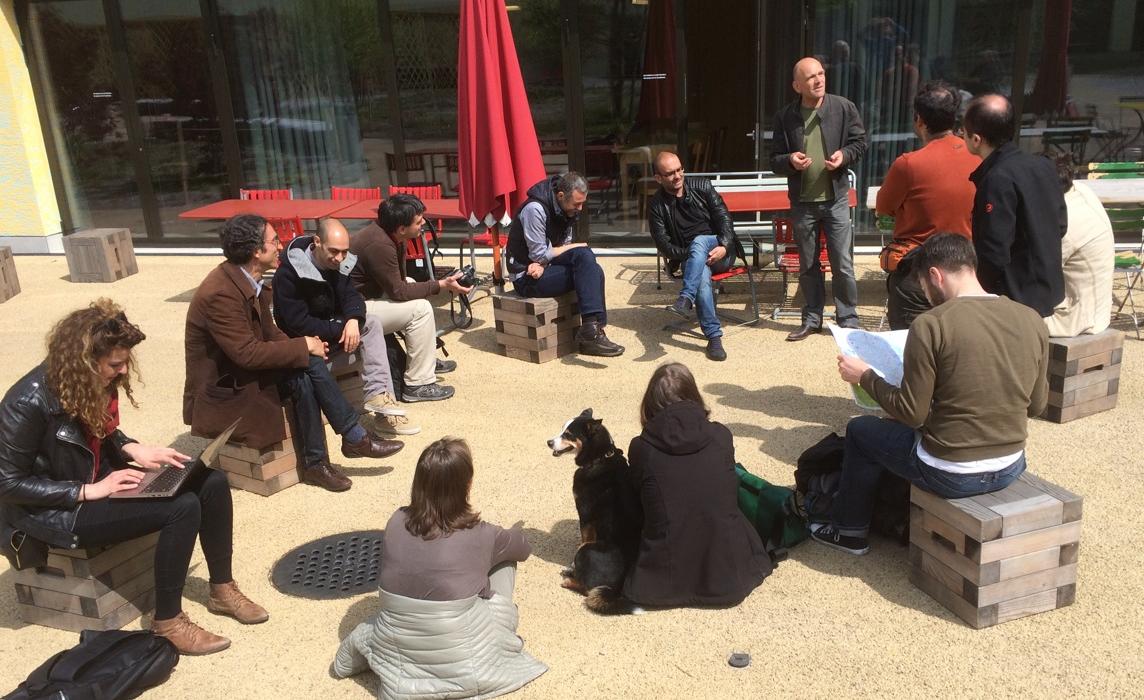
Workshop - Empowering citizens to shape their hybrid space
Community Now? symposium, Berlin, February 19-21st, 2015.
http://www.community-now.org/ [program]
The goal of this workshop was to explore a variety of methods for empowering citizens to build understandings of the fast evolving hybrid space of their cities, in order to participate more actively in city formation, and to use it for (self-)representation and engagement in local interactions. This process will increase the possibilities for claiming our right to the (hybrid) city from profit-driven development and tech corporations. In this context, the concept of diversity plays a key role. First, the design process needs to integrate elements from urban studies, anthropology, urban interaction design, and computer science, among others, which means that people with very different backgrounds and perspective need to work together. Second, in practice, the developed ICTs that aim to facilitate hybrid interactions, like thosed based on DIY networking, have to address the diversity of people that happen to be in physical proximity for small or long time durations. So, after a short introduction, Ileana Apostol and Panayotis Antoniadis invited the participants to introduce themselves through a personal story on experiencing diversity. As it turned out, this round of personal experiences became the main activity of the workshop. Every story brought a new element for understanding better the concept of diversity and its role in facilitating contact between strangers in the city and conviviality.
Offline networks public discussion
Transmediale Festival, Berlin, January 31st, 2015.
http://www.transmediale.de/content/offline-networks-unite
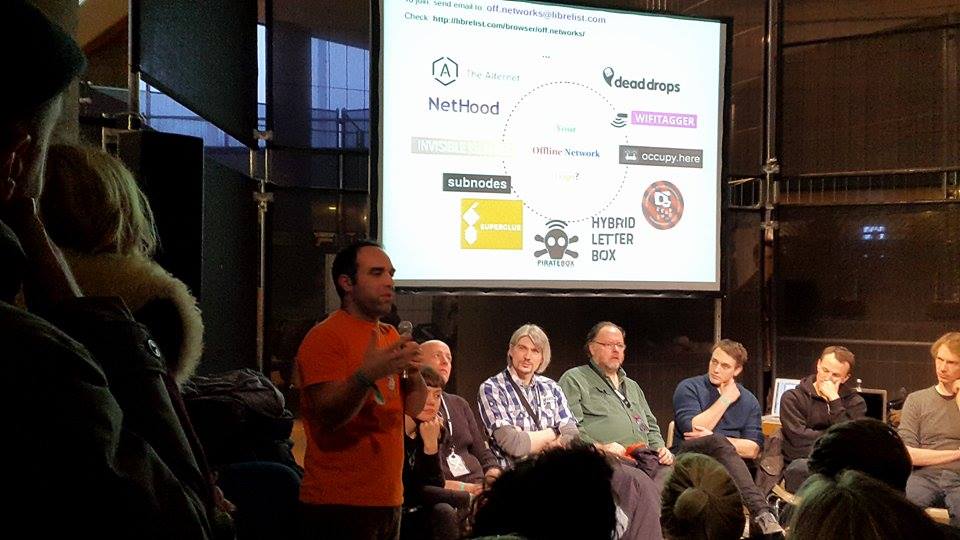
See also: https://events.ccc.de/congress/2014/wiki/Assembly:Offline_Networks
LSE workshop - Alternative Internet(s)
London, September 15-16th, 2014
http://www.iscc.cnrs.fr/spip.php?article1912
Building on history and the current state-of-the-art, we organized an open discussion between practitioners and scholars of various disciplines in order to assess the techno-legal feasibility of alternative Internets, understand their design requirements and social implications, and suggest possible ways for an improved network governance, that would enable a wide diversity of options in order to avoid the concentration of power and single points of failure. The workshop explored the techno-politics, architecture frameworks, governance and socio-cultural implications of alternative internet projects. Participants were asked for short position papers (1-3 pages), which have formed the basis for a curated blog series at the LSE Media Policy blog, a call for papers at the Journal of Peer Production, and more is coming!
3rd EINS summer school - From smart cities to engaged citizens
Volos, Greece, July 13-20th 2014
http://nethood.org/events/eins-summer-school-2014
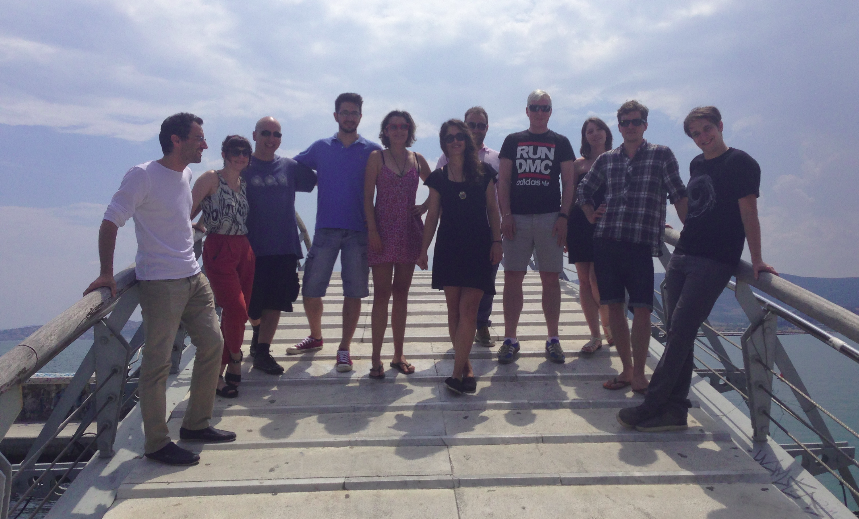
We chose to investigate an interdisciplinary approach on the design of ICT tools and urban interventions that can support a range of local citizen initiatives in contemporary cities including the following:
- Smart cities applications, crowd sourcing, citizen science
- Participatory urban interaction design
- Local hybrid communities over user-owned wireless networks (DIY networking)
- Complementary currencies and local economies
The summer school attracted 39 participants from around the world (both inside and outside EINS network) coming from various different disciplines (computer science, networking, urban planning, civil engineering, environmental engineering, economics, law, sociology, business and management, media and interface design, etc), that cooperated in order to propose smart applications for the city of Volos, under the guidance of experienced researchers and businesspeople.
Each day was divided in a plenary morning session where lecturers presented key concepts and ideas for each design space and an afternoon session where the different groups gathered to work on their selected application/assignment, supervised by both lecturers and tutors with hands-on experience on the topic. 5 basic groups have been formed working on projects related to the improvement of Volos economy through the use of complementary currencies, provision of cultural information for tourists using augmented reality and web application tools, building of a real-time map of the social heartbeat of Volos with the use of crowdsourcing tools, motivation of citizens to interact and get involved in the city's matters through urban interventions and local wireless networks, etc. The group projects have been presented the last day of the summer school at a panel including representatives from the city's local authorities.
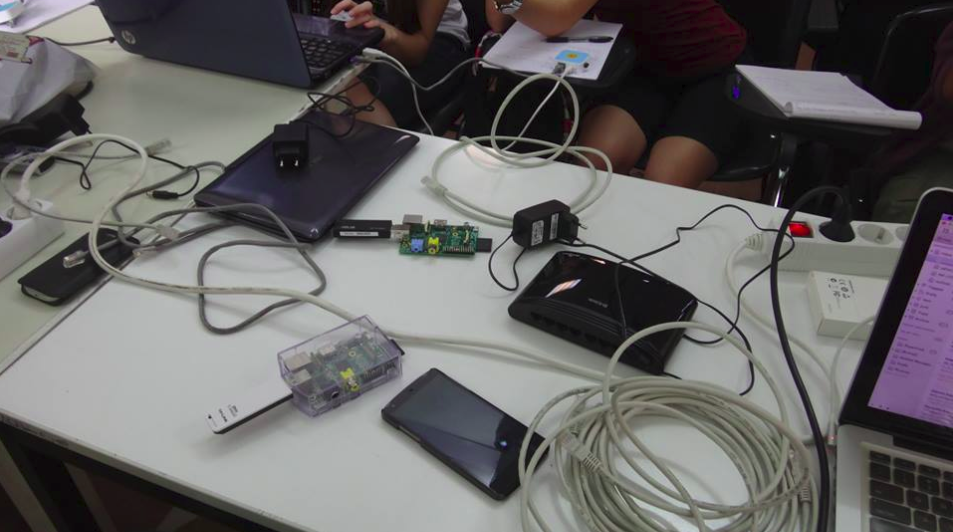
The presentations and the progress of the groups in such a short duration (3 days) impressed the audience and received very interesting feedback by the local authories. A draft e-book is available with short summaries of all interventions and outputs of the different working groups. (see also the videos of the lectures and final public presentation of the participants' proposals for the city of Volos).
Dagstuhl seminar - DIY networking: an interdisciplinary approach
Dagstuhl Schloss, Germany, January 19-22th, 2014
http://www.dagstuhl.de/14042
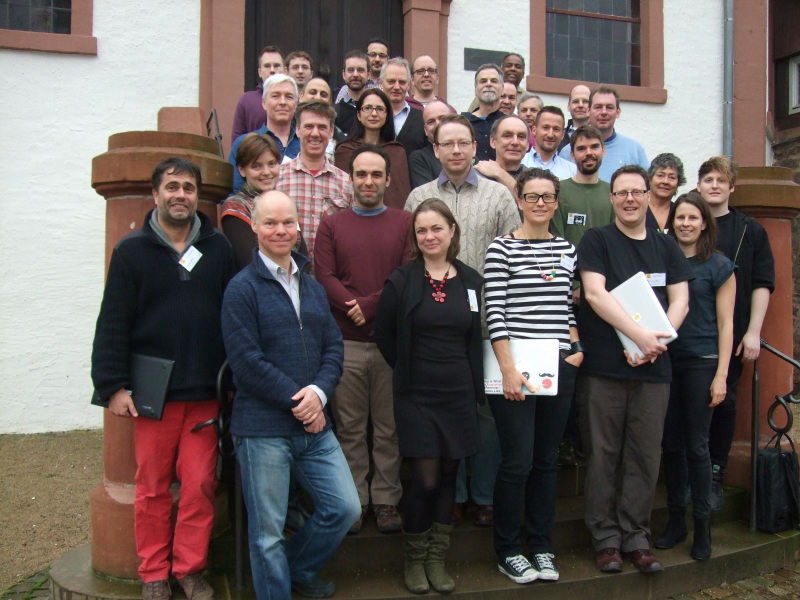
The key objective of the seminar was to bring together a diverse group of researchers and practitioners to reflect on technological and social issues related to the use of local wireless networks that operate outside the public Internet. We managed to bring together a quite balanced group of 32 people with expertise in the design and implementation of wireless ad hoc networks of various types, human-computer interaction, community informatics, urban interaction design, ethnography, media studies, arts and design. Interdisciplinary interactions took place successfully around specific application areas for which the use of do-it-yourself networks is meaningful. More specifically, we explored the use of such networks for supporting the creation of transient communities of different size and duration, political activism, and similarity matching. In addition, an in depth exploration of the concept of failure provided a useful framework for addressing various challenges in bridging the gap between theory and practice, scientific and social objectives.
Read more about the process and the outcome in our detailed report.
